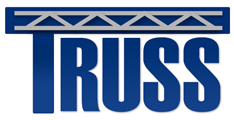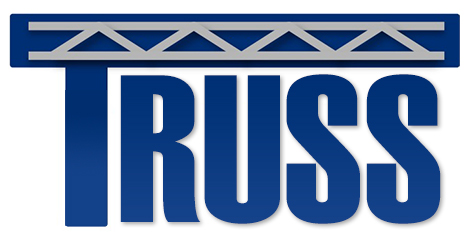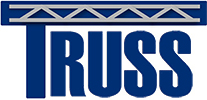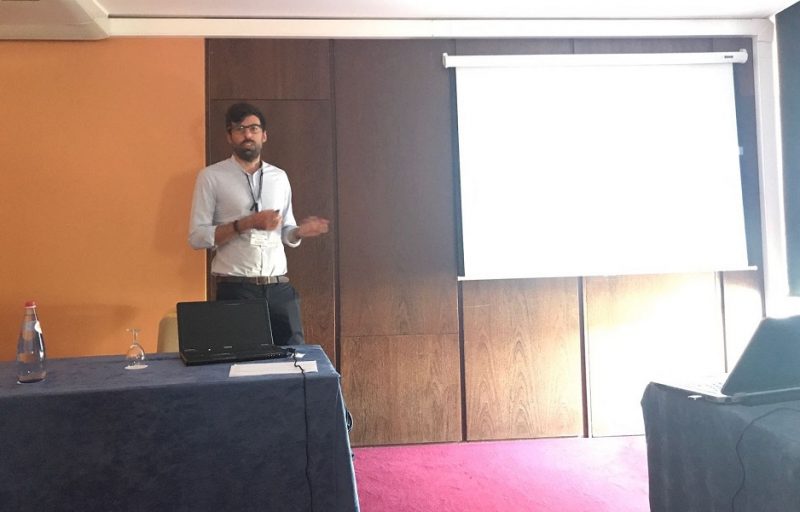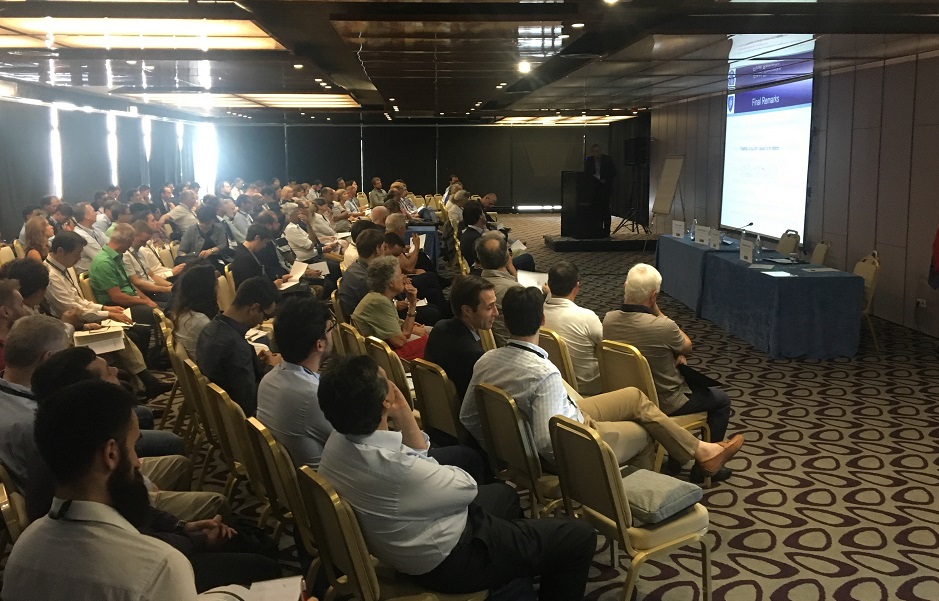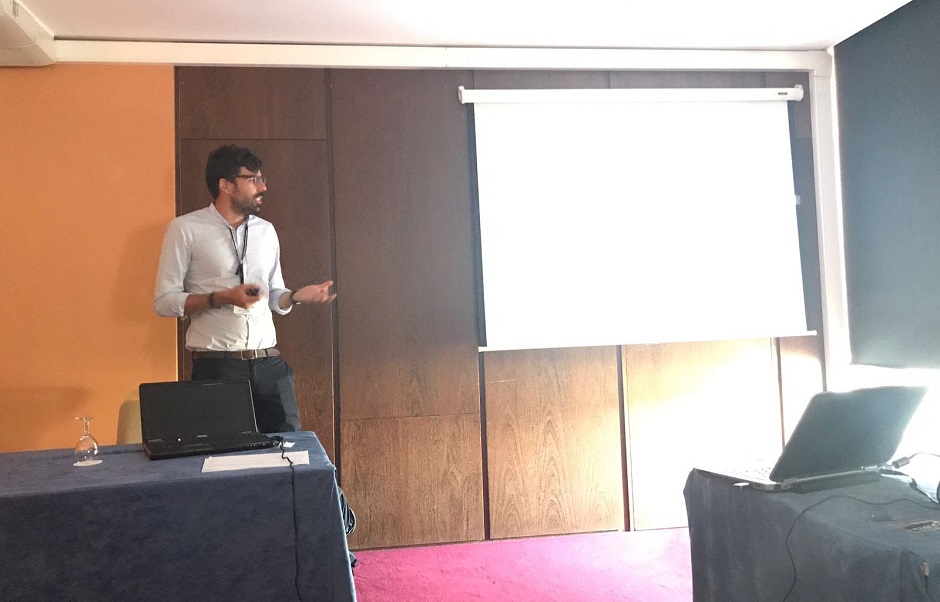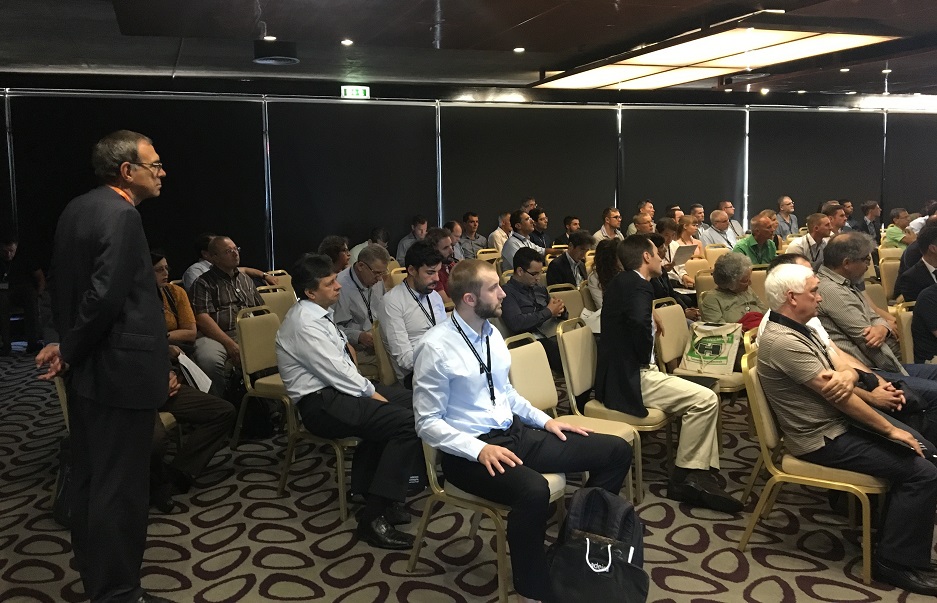Rui Teixeira (ESR4) talked about his TRUSS paper titled “Random variables in the Offshore Wind Turbine fatigue reliability design with Kriging surfaces” in the 2nd International Conference on Structural Integrity (ICSI) that also hosted the 2nd Multi-Lateral Workshop on Fracture and Structural Integrity related Issues in Funchal, the island of Madeira (Portugal) from 4th to 7th September 2017. The paper is also co-authored by Alan O’Connor and Maria Nogal (supervisors in TCD), Nandakumar Krishnan (co-supervisor during Rui’s secondment at LLoyd’s Register in Aberdeen), and James Nichols (co-supervisor during Rui’s secondment at Lloyd’s Register in London). ICSI brought together around 200 experts in structural integrity, in aeronautics and space, but also in other sectors of engineering where structural integrity is a key concern. Rui presented to approximately 30 delegates within the session “International Symposium on Probabilistic Fatigue & Fracture Approaches Applied to Materials and Structures” organized by Alfonso Fernández-Canteli, Antonio Martín-Meizoso, Abílio M.P. de Jesus (Session Chair), José A.F.O. Correia and Filippo Berto. This session run from 11.10 to 15.30 on the Monday, and it was intended as a forum of discussion of the recent advances in the domain of the probabilistic approaches for the fatigue and fracture characterization of materials (metals, polymers, composites among others) and structures (metallic, composite, joints, etc). This was a unique opportunity for Rui to interact in a multidisciplinary discussion not only with international experts, but also excellent local researchers from his homeland. TRUSS paper can be found in the conference proceedings that are open-access within Elsevier’s Procedia Structural Integrity.
Abstract: The fatigue design of Offshore Wind Turbines (OWT) is one of the most resource demanding tasks in the OWT design process. Techniques have been developed recently to simplify the amount of effort needed to design to structural fatigue. This is the example of the usage of Kriging surrogate models. These may be used in OWTs design not only, to reduce the computational effort needed to analyse an OWT, but also to allow their design to be robust. Due to the stress variability and its non-linear character, the short-term fatigue damage variability is high, and converging the stochastic field approached by the surrogate model in relation to the real observations is challenging. A thorough analysis of the different components that load an OWT and are more critical for the tower component fatigue life is required, and therefore, presented and discussed in the current paper. The tower, jointly with the foundation, are particular components of the OWT regarding the fatigue analysis process. Statistical assessments of the extrapolation of fatigue loads for the tower and the influence of the environmental parameters in the short-term damage are presented in this paper. This sets a support analysis for the creation of the Kriging response surfaces for fatigue analysis. NREL’s 5 MW monopile turbine is used due to its state of the art character. Five environmental variables are considered in the analysis. A sensitivity analysis is conducted to identify which variables are most prominent in the quantification of the short-term damage uncertainty in the tower. The decoupling of the different external contributions for the fatigue life is a major contribution of the work presented. Preliminary guidelines are drawn for the creation of surrogate models to analyse fatigue of OWT towers and the most relevant conclusions are presented in an industry-oriented design outline regarding the most critical random variables that influence OWT short-term fatigue calculation.
Further details can be found in the following hyper-links:
